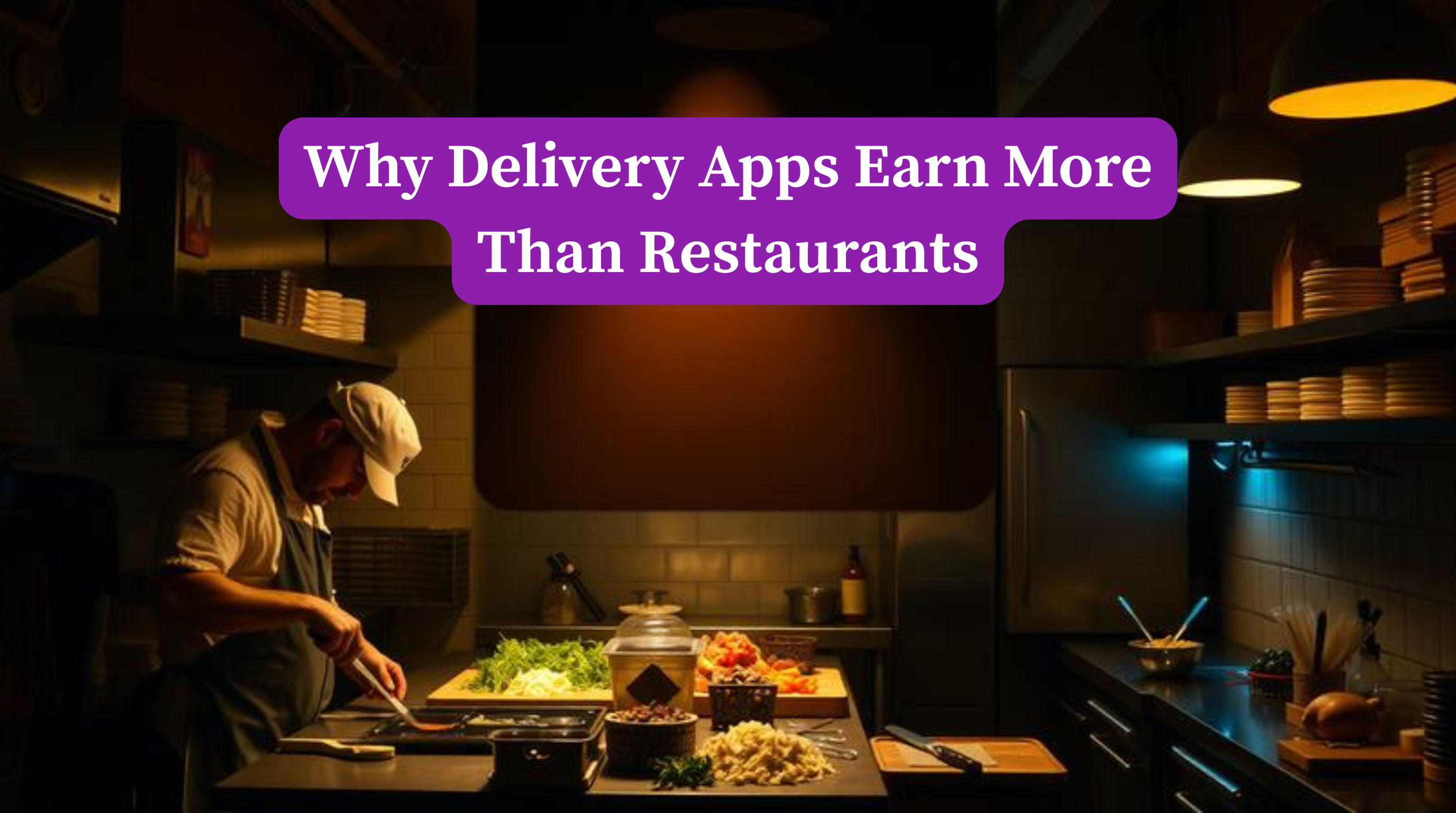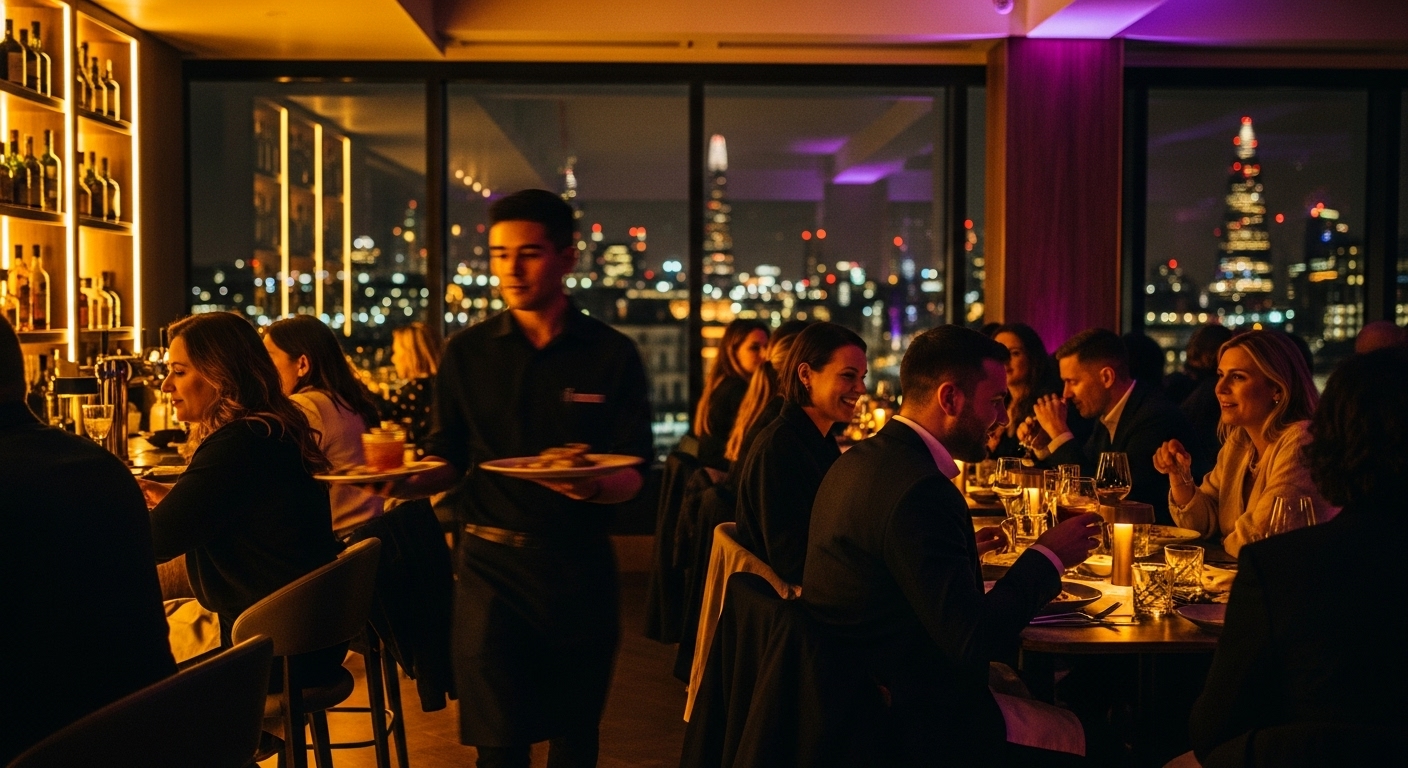Opening a restaurant is one of those ideas that captures the imagination. You picture lively tables, the sound of glasses clinking, the aroma of fresh food drifting through the air. Platforms like Quikin.vip even step in to make operations smoother by helping venues reduce no-shows, manage customers, and streamline service. But here’s the harder question: beneath the charm and creativity, is the restaurant business truly profitable in the UK?
Let’s dig deeper.
The Harsh Economics of Running a Restaurant
The UK restaurant industry is both vibrant and unforgiving. According to industry reports, thousands of new restaurants open each year, but a staggering proportion, nearly 60%, close within the first three years. Why? Because the numbers are tight.
Operating Margins: Restaurants in the UK typically run on 2–6% profit margins. Compare that with sectors like software (20%+) and you see the challenge.
High Fixed Costs: Rent, business rates, insurance, and licensing pile up before you even serve your first meal.
Labour Costs: Post-Brexit labour shortages mean wages are rising, making staff retention and training a critical cost.
Food Inflation: Supply chain disruptions and inflation have pushed up ingredient prices significantly, shrinking margins further.
For many owners, breaking even in the first year is already a win.
Why People Still Take the Risk
So if it’s so tough, why do people pour their savings, and sometimes their sanity, into the restaurant business?
Because a restaurant is not just about food. It’s about identity, culture, and community. Restaurants are gathering places, storytelling spaces, and creative outlets. For chefs and entrepreneurs, they’re also platforms to build a brand that can expand into catering, meal kits, or franchising.
And profitability isn’t always immediate. Some of the UK’s most successful restaurant groups started as single small venues scraping by until they refined their model. Once you get it right, you can scale, and that’s where the money is.
The Unique Challenges in the UK Market
Running a restaurant in the UK comes with some challenges that make it a special kind of battlefield:
Rising Rents in Prime Locations
Central London and other big cities are lucrative but brutally expensive. Many independents are priced out before they’ve built a loyal following.Labour Shortages and Rising Wages
Brexit has made it harder to recruit experienced staff. Training new staff not only takes time but adds cost and inconsistency to service.Competition at Every Level
From food trucks to fine dining, the UK food scene is crowded. Standing out requires a unique proposition, a concept, cuisine, or experience diners can’t get elsewhere.Consumer Shifts
The rise of food delivery apps has changed the economics. Restaurants now compete both on-site and online, with platforms taking up to 30% of each order.Economic Volatility
Inflation, energy prices, and fluctuating consumer spending power keep restaurant owners on edge.
Opportunities That Make It Worthwhile
Despite the challenges, there are opportunities that make the UK restaurant industry one of the most exciting in the world. Here’s what smart restaurateurs are doing:
Lean Menus, Strong Identities
Niche restaurants, think sourdough-only bakeries, regional street food, or vegan fine dining, are thriving. A smaller menu cuts costs and waste while carving a clear identity.Tech-Savvy Operations
From QR code menus to predictive ordering systems, technology is reducing overhead and increasing efficiency.Experience-Driven Dining
Consumers aren’t just eating; they’re buying an experience. Restaurants that create a sense of theatre, whether through open kitchens, immersive décor, or storytelling menus, draw repeat visits.Local Sourcing
More diners are looking for sustainable, locally sourced food. This trend not only reduces supply chain costs but also doubles as a powerful marketing message.Diversified Revenue Streams
Many restaurants now supplement income with delivery, catering, branded products, or cooking workshops.
Lessons from Success Stories
Take Dishoom, for example. What started as a single restaurant in Covent Garden became one of the UK’s most beloved dining brands. Their success wasn’t just about food, it was the immersive Bombay café experience, consistent service, and the ability to scale without losing identity.
On the other hand, small, independent operators in cities like Manchester, Bristol, and Edinburgh are showing that tightly focused menus with strong local followings can be both profitable and sustainable.
So, Is It Profitable?
The honest answer: yes, but only if you approach it with a sharp business mindset. Passion is essential, but it won’t pay the rent.
If you’re thinking about starting a restaurant in the UK, ask yourself:
Do I understand the true cost structure, not just rent and food, but hidden costs like licensing, waste, and marketing?
Do I have a unique angle that makes my restaurant stand out in a crowded market?
Am I prepared to work long hours, adapt constantly, and embrace technology?
Do I have a plan for scaling, or am I content with a single profitable venue?
Restaurants aren’t quick-money ventures. They’re marathons. But for those who balance creativity with strategy, the rewards can be cultural influence, community recognition, and yes, profitability.
Final Thoughts
The restaurant business in the UK is not for the faint of heart. It’s volatile, competitive, and full of hidden costs. But it’s also dynamic, creative, and deeply human. The profits are there, but they’re reserved for those who combine a love of food with the discipline of a savvy entrepreneur.
If you’re thinking of stepping into this world, go in with your eyes open, your numbers tight, and your vision clear. That’s the difference between being another statistic, and building a restaurant that thrives.









